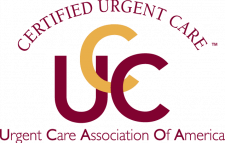Now that we’ve reached short days and colder nights, cold and flu season is upon us.
The common cold is the most common upper respiratory illness. It infects millions each year due to its contagious nature. On average, adults experience 2-3 colds per year, with children experiencing almost double that.
Often synonymous with the fall and winter months, the common cold is the culprit to many winter blues, and cold weather illnesses, so many often wonder if you can catch a cold from cold weather.
While it may seem like the most obvious link, the common cold has nothing to do with the cold weather.
If you’re experiencing mild to moderate respiratory issues, you may have a cold, which can be treated with rest, hydration, and time for most people. If your symptoms are severe, you should seek urgent care or emergency treatment immediately.
Now, let’s discuss the common cold in more detail, including common symptoms, treatment options, and whether you can catch a cold from cold weather.
First, What Is the Common Cold?
The common cold is a contagious viral infection that affects your upper respiratory tract.
It can be caused by 200 different types of viruses, most often the rhinovirus.
Symptoms
Cold symptoms typically appear 2 to 3 days after exposure and last about 7 to 10 days.
Symptom type and severity are different for everyone, but the most common symptoms include
- Cough
- Sore throat
- Post-nasal drip
- Runny or stuffy nose
- Watery eyes
- Sneezing
In rare cases, people may experience a low to mid-grade fever.
So, Can You Catch a Cold From Cold Weather?
The short answer is no. There is no direct or scientific link between the common cold and cold weather.
A cold is not something you get due to a change in temperature, weather, or season.
You can only get a cold by encountering someone or something infected with the virus.
A cold spreads from person to person through the air and close contact. In rarer cases, a cold can spread through direct contact with an infected person’s stools or respiratory secretions.
It is contagious from contracting it until your symptoms are entirely resolved. This means that you can spread the cold before your initial symptoms begin.
Diagnosis and Treatment
A cold is diagnosed by the type of symptoms you’re experiencing.
Most people with a cold recover on their own at home, but specific measures can help reduce symptom severity and cold longevity, including
- Proper hydration
- Adequate rest
- OTC anti-inflammatories, pain relievers, and decongestants
- Throat lozenges or saltwater gargle to relieve a sore throat
- OTC saline nasal drops or spray
- A cool-mist vaporizer or humidifier
Cold Care on the Emerald Coast
At Emerald Coast Urgent Care, we understand the importance of staying healthy and feeling your best.
Because the common cold is a contagious virus, proper diagnosis and treatment are essential in slowing the spread to others.
If you’re experiencing symptoms of a cold, especially ones that become severe, we can help.
You should visit us today if you are experiencing any of the following:
- Trouble breathing
- Rapid breathing
- Dehydration
- Fever that lasts more than 4 days
- Symptoms that last more than 10 days without improvement
- Symptoms that improve but then return or worsen, such as a fever
- An increase in symptoms or severity of chronic medical conditions
Our urgent care facility is open seven days a week with no appointments necessary. Simply walk in; we can treat your cold today.




